A successful job interview
Virtual coffee with a student 2021-11-23

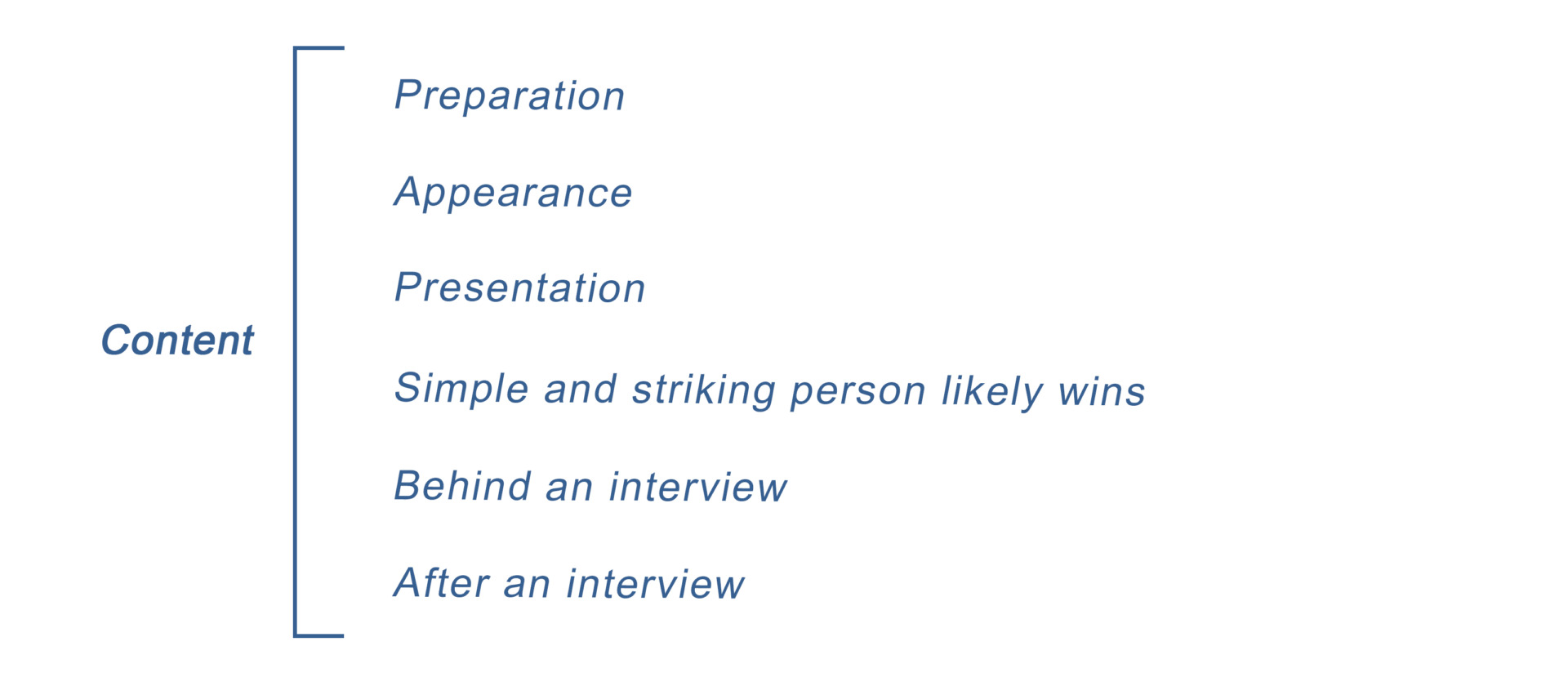
There is a difference between applying for work in a fast-food restaurant and applying for work aimed at your life career and life plan. When applying to a fast-food restaurant, it is unnecessary and inappropriate to over-stage yourself, to be cleanly groomed and well mannered is sufficient. For work aimed at your life career and life plan, the preparations are higher and serious, because your life career and life plan are at stake. This article is written for this.
1) Preparation

When the music band Rolling Stones were recording a Rock and Roll song masterpiece, the guitarist Keith Richards said to himself, “Don’t fuck up now!”
When you hear from the business you apply to that you are wanted for a job interview, it may be one of the best news in your life. Best news in your life because of 2 reasons, first, your submitted resume proved it caught the interest of the employer and you are given a solid chance towards your dream of a fulfilled career and life. Second, though you might not realize, landing a solid job will at the end give you a test and lesson for your life.
When you hear from a business, you are usually given less than a week to prepare for a job interview. It is not enough time to to assemble from scratch everything, to convince the employer that you are the best candidate for a job.
But you are applying for a work with chance to fulfill your dream of a life career and a life plan. It is important when the outside world offers such chance to you, that you do not pass up, or mess up, because of your own ignorance.
Preparations for a job interview began before you even write to an employer. It began when you were trained in university for professional knowledge, trained in high and elementary schools for general life knowledge, it began when you learned about resumes, and when you accumulated personal interests and abilities from your childhood to adulthood.
When a business contacts you, regardless whether you are junior or senior, in fact the business is not interested in helping you, or understanding you, but they desperately want another thing: that you understand them, and can help them.
The business does not want verbal flattery but solid understanding and help. Full understanding of a business does not exist, even for a top senior person, because of 2 murky clouds: the private history inside that particular office, and that particular office’s private management criteria; these 2 clouds take a long time to clear, or may never clear at all.
For a junior job applicant, a business is more lenient, and usually sets its admission criteria to the straight forward understanding of related industry’s public agenda. For many white-collar jobs, this means (1) knowledge of related government regulations, (2) general office practice, (3) and in our modern era, abilities in related computer software.
If you are a junior job applicant, you should prepare yourself to learn the 3 fields above. There are junior degrees of knowledge of the 3 fields, afterwards up to sophisticated knowledge, but you need to be aware of 2 minimum criteria: first, you should not be dirt junior in regulations, office practice and computer software. Second, the more usable and efficient your knowledge and abilities, the better for both the business and yourself. These abilities you should learn and practice to be fluent, well before you even write to a business.
A well-prepared resume is discussed in “An attractive resume” on this website. A portfolio that you need to take to a job interview is a detailed and graphic extension of the resume. You should prepare your portfolio before you even write to a business, with the same full attentiveness and detail you pay to your resume.
Below are 3 portfolio formats. If you prepare and take to an interview not one format, but both a booklet and PowerPoint, it should impress the employer.
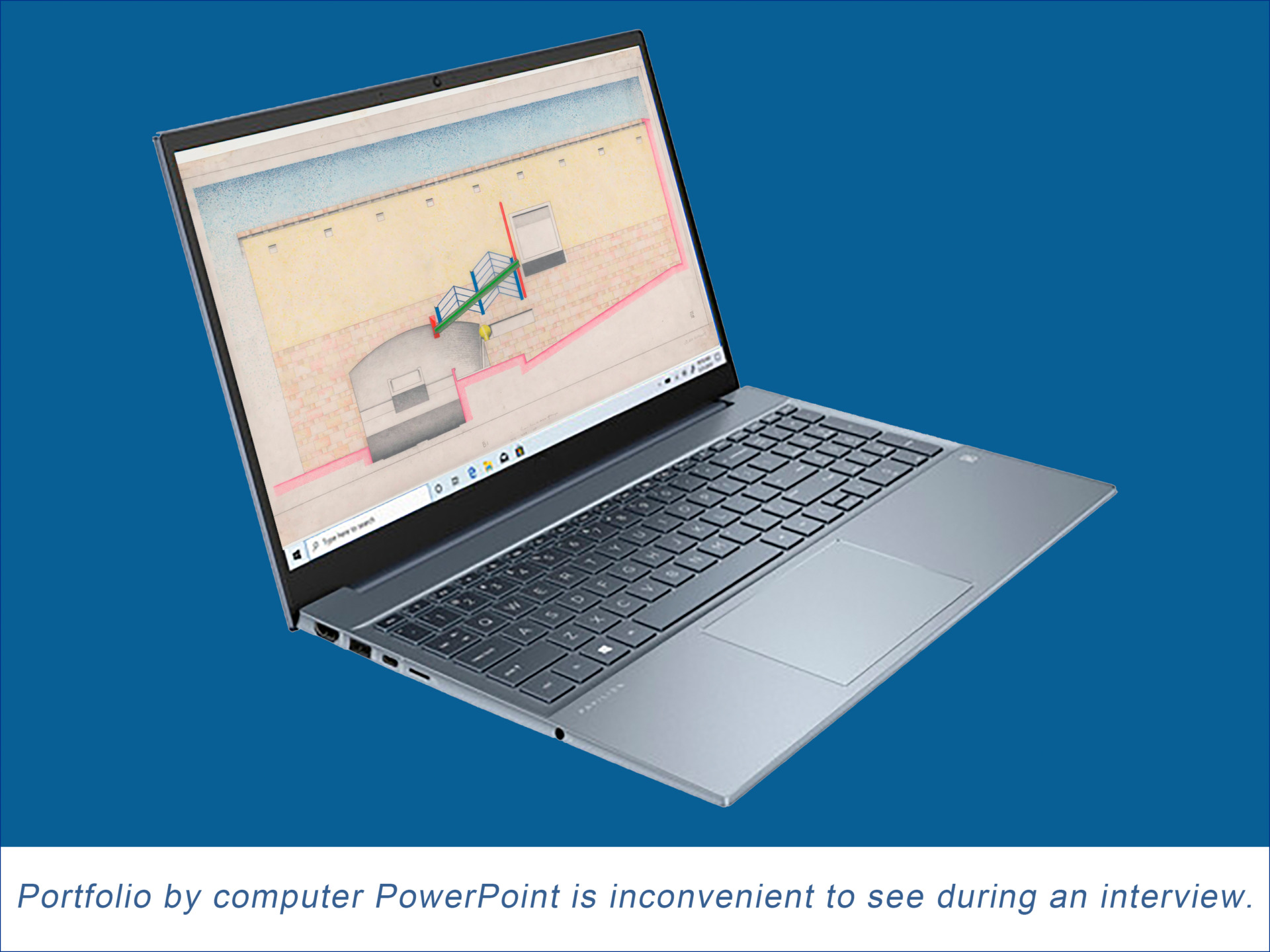
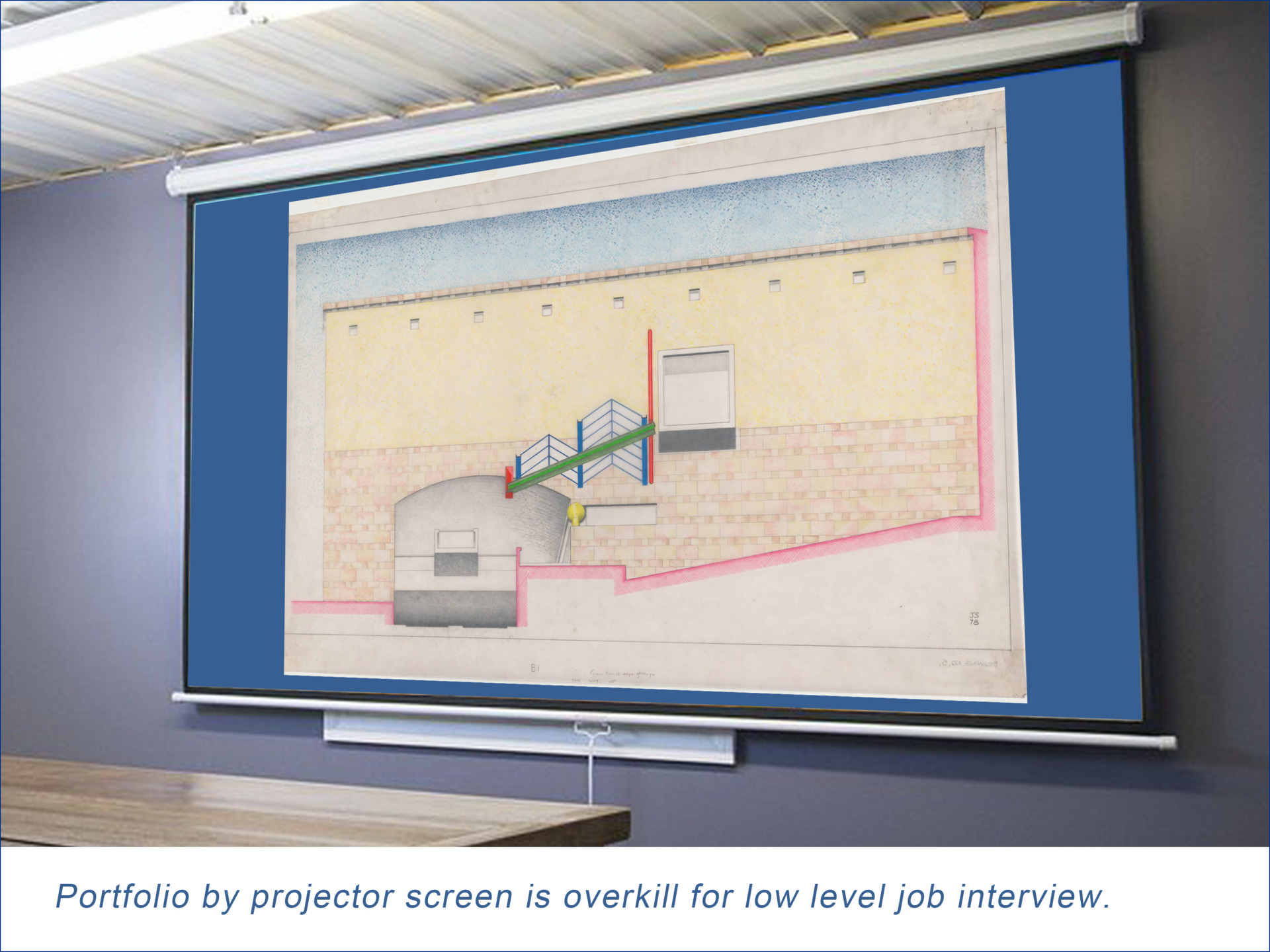
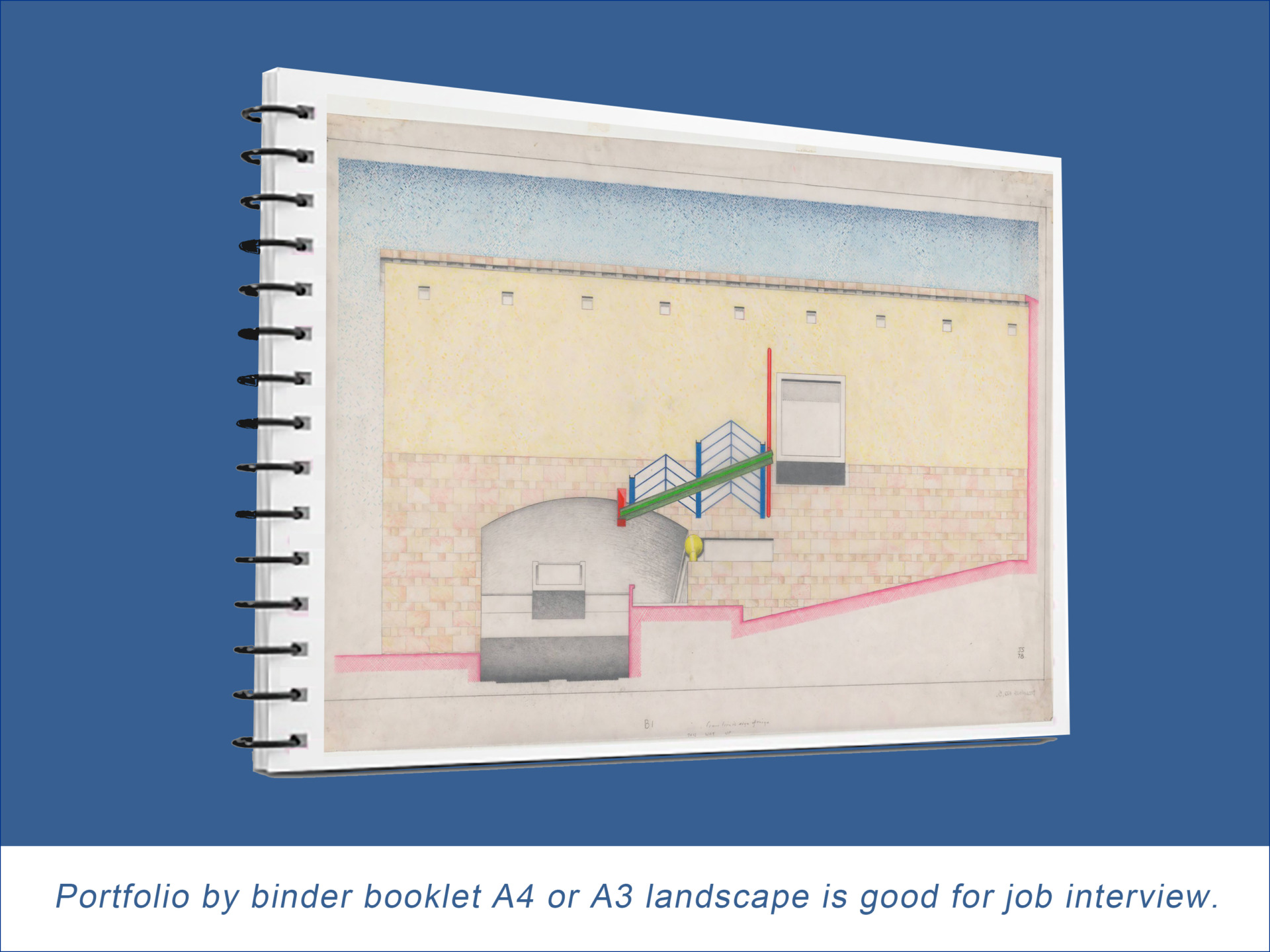
2) Appearance

At an interview, if an observant employer is present, the employer picks up our personality, i.e. our friendliness, expression, reaction, or the lack of them. Our inner character, i.e. our inner self, actually molds our true work contribution the most, is seldom discerned in a short encounter or even a long time. You should just be yourself, but like long time accumulated technical learning in the previous “Preparation” section, you need an awareness of your character’s evolvement. This is discussed in “Individual, groups, institutions, world” on this website in the “Individual” section. Evolvement of our character helps our work and career greatly.
A job interview may last half an hour, it is a limited time to show the employer the full positive content in you and impress the employer, which is your real aim. In this limited time, what is caught by the employer’s eyes, hearing words through the ears, is most important. In short, in an interview, how you look is the most important.
Envision beforehand how the portfolio looks to the employer. Above the portfolio, regardless whether you are male or female, be conscious you are cleanly groomed and uplifting dressed, and you speak with friendliness.
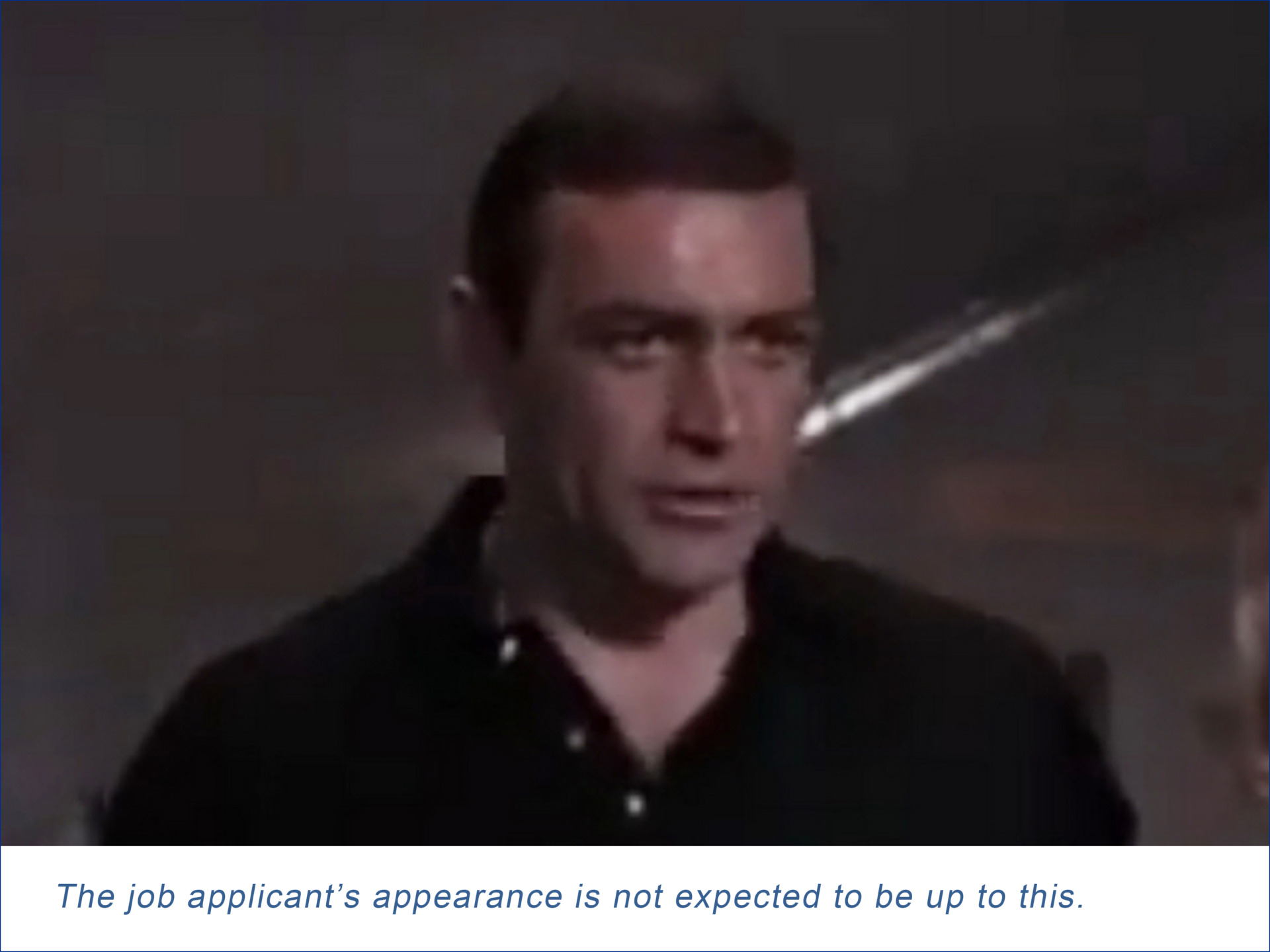
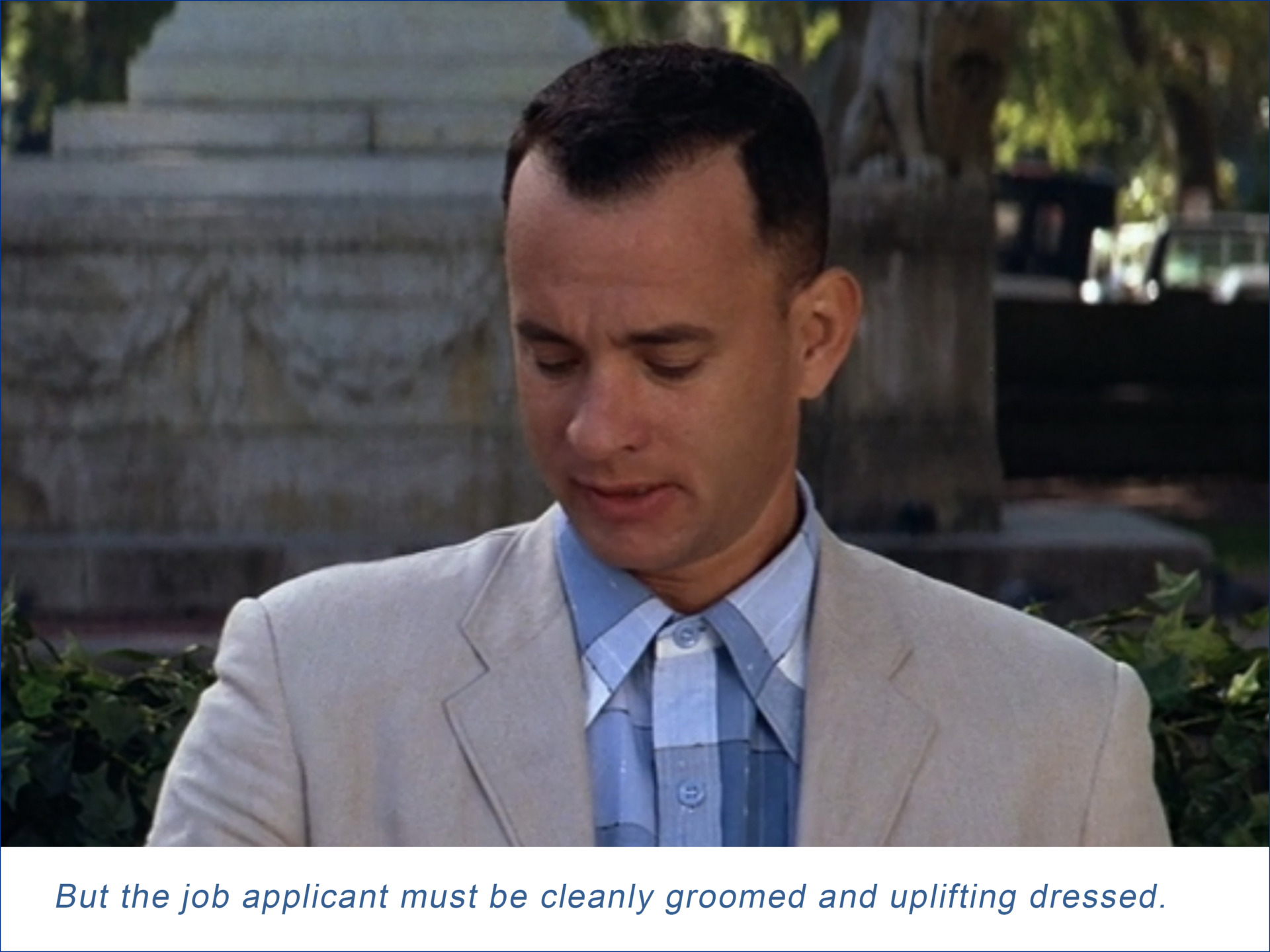
3) Presentation

For a business meeting the chairperson always prepares a meeting agenda, listing anticipated problems and solutions to discuss. We look at an interview like another business meeting, planned with expected discussions. For a job interview, plan beforehand as if the job applicant is conducting the meeting. Envision self introduction, portfolio presentation, questions and answers, but expect what you do not know to come up during the meeting.
This meeting should have only short talk and should have no boredom. Be prepared your work has solid substance, and be prepared your work is presented easy to look at, in a pretty way. Prepare this mentally and physically long before the interview, and be certain that when a business contacts you, the few days allowed for preparation is generous for only a final assembly of your material.
I hear that the famous architect Norman Foster does not plan before a meeting. I can see his point, that he wants the meeting to be spontaneous and therefore lively. But Norman Foster had prepared for meetings through his entire life, and therefore does not need last moment planning. An analogy is if you practice speaking French numerous times in private, when the moment comes you simply walk on the stage and speak beautifully.
But I do not take the risk of not planning. I envision and assemble everything and each item in careful detail beforehand. And the results have always come out as I envisioned beforehand.
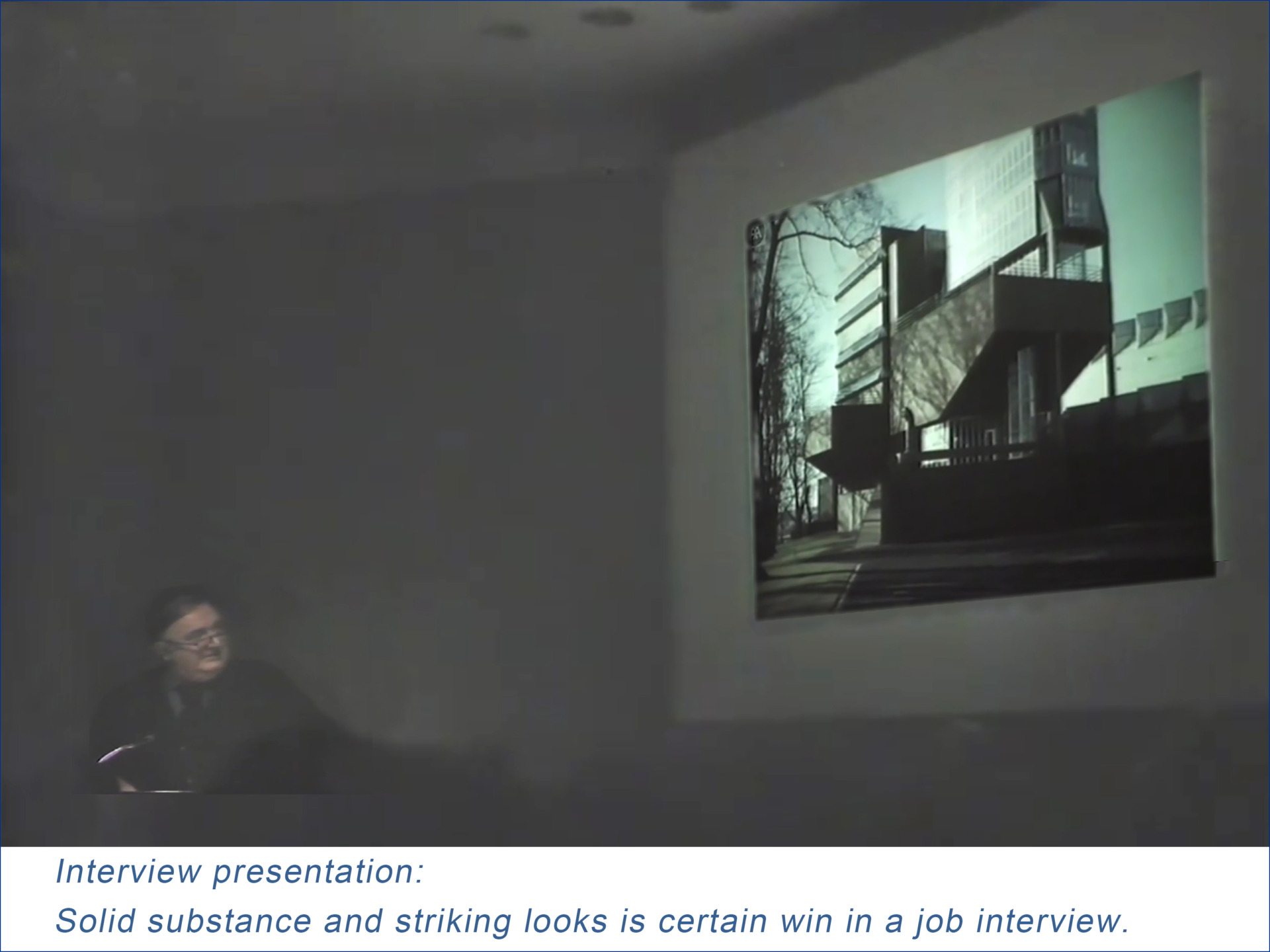
4) Simple and striking person likely wins

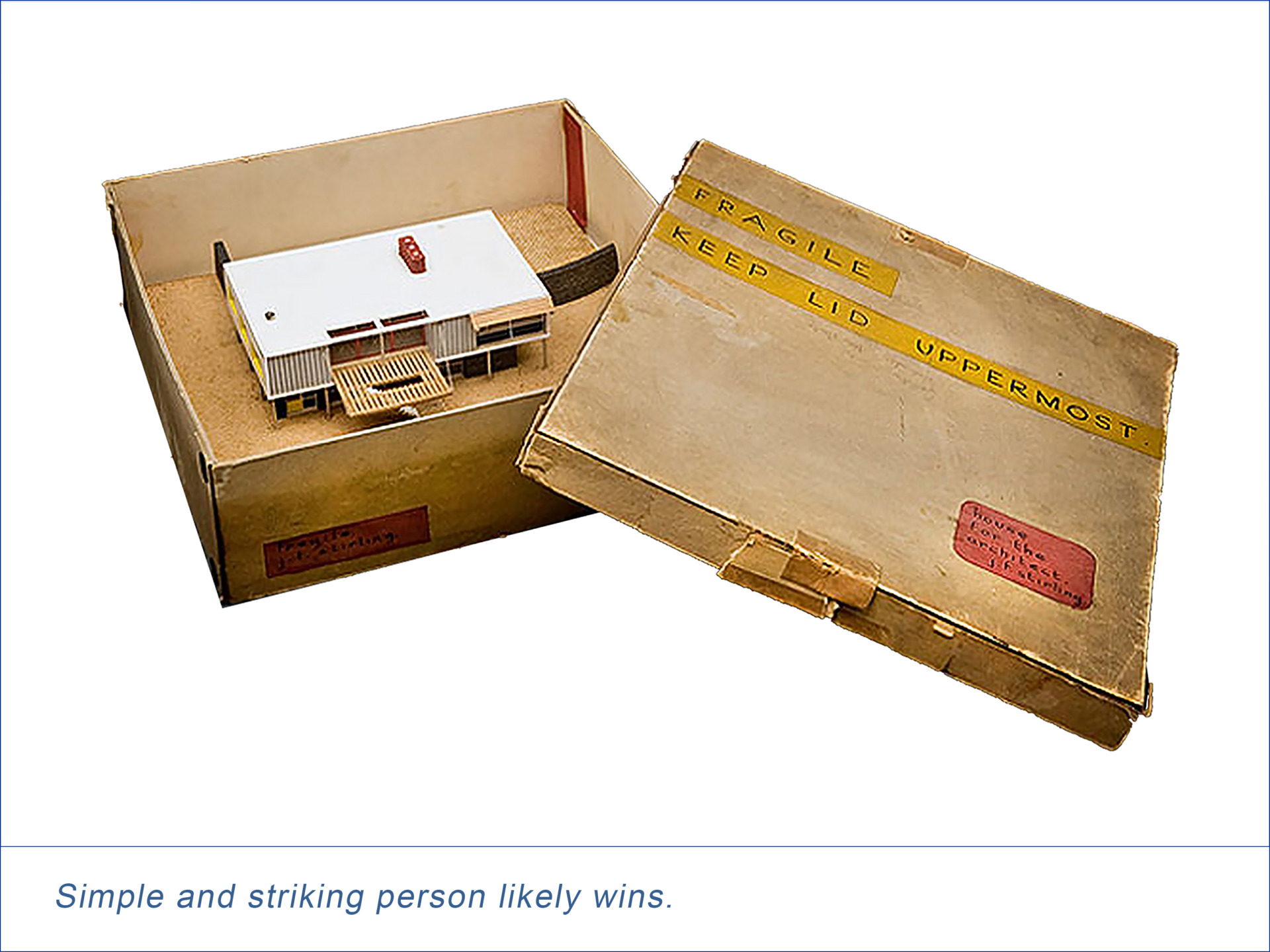
When a business asks us to a job interview, we are already fortunate. But we are a long way from winning a job, for one, unknown number of people may come to the same interview competing against us. We do not know who these people are, we do not know what the employer thinks. We only know ourself.
It is useful to know a rule, “The simple and striking person likely wins.”
In this rule, striking always comes first and simple comes second.
Striking is the hard work we do in private, involving dedication and focus for ways to make our work superior. Striking may be we produce goods more striking than others, or simply our work quality better than others. In all cases striking is not automatic talent but is conscious work, and we do it in private.
Simple is what we do afterwards, to make our work and ourself look easy.
When we deliver solid striking work and we remain simple in person, the combination always impresses people and we win.
5) Behind an interview

When we are junior or middle job applicants, we do not know what employers use to judge us. Perhaps many of us, when a business calls, we grab our portfolio and go to an interview, just hoping for the best.
Employers do use industry public agendas to judge us, that is, general public goals of a business. For example, a garment factory needs fashion design, fabric knowledge, material supply chains, clothing assembly, salesmanship, logistics, and job applicants are judged according to the standards and needs of that industry.
Private businesses are not public organizations that are exact, no more and no less, public proclamations. Private businesses adhere to general public agenda, but they are private people like us, with our private characters and private preference.
We do not know the private character or life of the employer interviewing us, and we need not be concerned at an interview. At an interview, we focus with the general public agenda.
In my career I have attended approximately 50 job interviews. In majority of cases I was subsequently hired because of pure need, that is, solely judging me according to general public agenda. A minority, I realized long afterwards, sometimes years afterwards, I was hired because of the employers’ private reasons. One common reason is an employer’s wish to do public good by hiring a student.
In one instance, as I put together years afterwards, I was hired, on top of my abilities, because I came from 2 universities, one world famous, the other university used to have a dean who transferred to become my employer’s university dean, my employer was a sentimental person.
In another instance, as I put together years afterwards, I was hired, because the employer had a love-hate relation with an important strategic partner, and I resembled that partner in age and experience, and the employer wanted me as a public relation front man, not as a professional worker. In this case, the employer never told me his private agenda.
But I always contribute to work according to the general public agenda, regardless of an employer’s private agenda. You should too, for 2 reasons, it is simpler, and it is correct.
6) After an interview

When you win at the job interview, it is good news! A new work life begins. You meet new colleagues, you are given work assignment, you begin a new routine of work and home, you begin to plan your new life.
And with or without your being aware, two life situations step in. One situation is your work contribution. You may find, many times over months and years, work achievement, work misstep, career success, career error. The second situation is general life. Over months and years, you may see happy developments, exciting breakthroughs, wonderful days, but maybe also mundane days, times of incomprehension, difficulty or loss.
But whether we are aware or not, all the happiness, joy, incomprehension and loss come together, they are all one, life’s learning and lesson for us. The journey here is more than just the job, it is for us to learn about life.